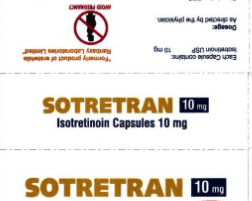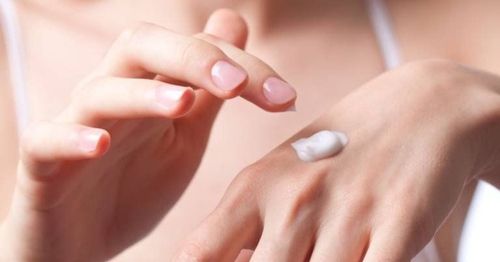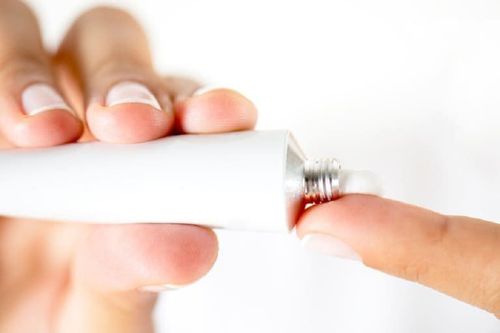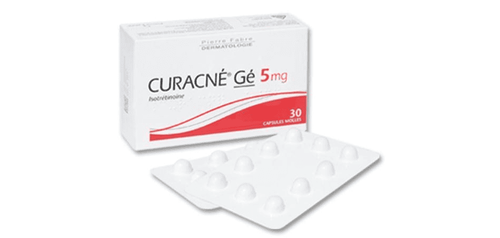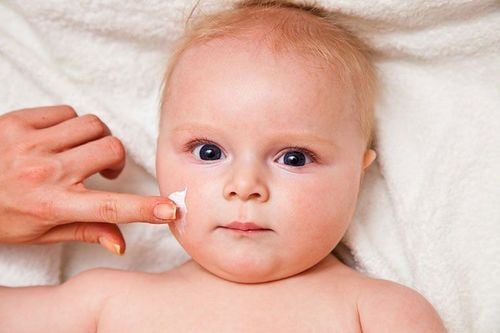This is an automatically translated article.
Of all the acne skin treatments available in the dermatology clinic, oral isotretinoin is one of the most satisfying. Before treatment, patients with severe acne but at the end of treatment, generally feel much more confident with their smooth skin. Accordingly, the effect is largely due to the skin care phase after taking isotretinoin, which should be strictly followed under the guidance of a dermatologist.1. What is isotretinoin?
Isotretinoin is a vitamin A-derived retinoid and is the only medication used to treat acne-prone skin and can cause acne to go into remission. If taken at the correct dose for the right duration of treatment, isotretinoin is effective in about 85% of acne disappearing forever. However, even with inadequate adherence to the correct dosage for the duration of treatment, there is still an approximately 15% chance of recurrence. In addition, isotretinoin is also indicated for more severe forms of acne, especially those that cause acne scarring. Furthermore, the drug is also indicated in patients for whom all other treatments such as hormonal therapy or antibiotics have failed. Therefore, in these situations, isotretinoin prescriptions can be as long as 6-8 months.This is a strong acne medication but if prescribed by a dermatologist experienced with the drug, isotretinoin is completely safe. Blood tests are always required before treatment and during treatment. It is important for patients to see their doctor for regular follow-up visits during treatment.
2. How long do the side effects of Isotretinoin last?
Potential side effects of Isotretinoin include sensitivity to the sun, muscle aches, and soreness with vigorous exercise, and at the start of treatment, a person may also experience an acne flare-up. severe but usually subsides after about 6 weeks.The above undesirable symptoms will improve immediately after stopping isotretinoin. However, the drug remains in the body system for a month. Therefore, it should be noted that acne can return for a while after stopping the medication.
For women who could become pregnant, the user must remember to continue using the two combined forms of birth control for one month after stopping isotretinoin. If you become pregnant accidentally while isotretinoin is not completely eliminated, the risk of the baby being born with severe and serious birth defects is very high, including an increased risk of miscarriage.
Isotretinoin là loại thuốc duy nhất được dùng để điều trị da mụn
3. Skin care after taking isotretinoin
Because isotretinoin's mechanism of acne treatment is to reduce sebum production from the sebaceous glands by about 80%. So, before Isotretinoin treatment, the skin will be very oily and during treatment, the skin will become dry and likely to crack and peel.Therefore, it is very important to change skin care after taking isotretinoin as well as skin care products, from those specifically for oily skin to those for dry skin. As skin becomes more sensitive and drier, users will need to use special products to help hydrate and support the skin barrier during Isotretinoin treatment.
Specifically, doctors often recommend a mild, non-foaming cream cleanser, a slightly more hydrating day and night moisturizer, a lip balm, and a broad spectrum sunscreen. . In other words, users need products similar to those intended for dry, sensitive skin during this treatment. At the same time, users should also avoid using topical retinol and other toners or exfoliants, as these can further dry the skin and cause severe skin irritation.
At the end of the course, the skin will be completely free of active lesions. However, some acne scars or hyperpigmentation may remain after treatment with isotretinoin. After stopping using the drug, it will take about 30 days for the skin to clear the drug from the blood and after this time, the skin will look more like normal and combination skin than the original oily skin.
4. Will acne scars fade after finishing treatment with isotretinoin?
There is no single treatment that completely removes acne scars. Fortunately, red, prominent scars often fade over time. At the same time, keloid scars are often cured simply by massaging them for 10 minutes a day.When considering any acne scar treatment, it is important to have a clear understanding of the process, the principle of action, such as chemical peels, laser skin treatments or dermabrasion, all risk of scarring recurrence. Therefore, it is important to consult carefully about these treatments with a dermatologist before making a decision.

Để chăm sóc da sau khi uống isotretinoin, bạn nên dùng loại sữa rửa mặt dịu nhẹ
If you have a need for consultation and examination at Vinmec Hospitals under the national health system, please book an appointment on the website (vinmec.com) for service.
References: aad.org, nhs.uk, publicdocuments.sth.nhs.uk, dermastore.co.za




